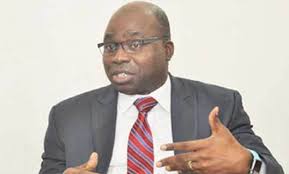The Independent Corrupt Practices and Other Related Offences Commission (ICPC) on Tuesday said that it would prosecute politicians and contractors found to have engaged in fraudulent execution of constituency projects in the country.
The chairman of the commission, Prof. Bolaji Owasanoye, who disclosed this during the launch of the Constituency Projects Tracking Group (CPTG) in Abuja, said that given the level of budgetary allocations and cash-backed disbursements on constituency projects over the years, the impact of the capital releases should be more noticeable nationwide.
The ICPC chairman explained that open source information on the level of implementation in 16 focus states in 2016 showed that out of 436 constituency projects that were tracked, 145 were completed, 77 on-going, and 211 not executed.
Expatiating further on the level of constituency projects’ implementation, Owasanoye said that in 2017; out of 852 projects in 20 states tracked, 350 were completed, 118 were on-going, 41 locations were not specified in the budget, while 343 were not done.
According to him, only 40 percent performance of the 2016 constituency projects was achieved in 20 states, adding that for 2017; 1,228 constituency budgets were tracked for performance as at June 2018. He noted that out of these, 478 were completed, 173 were in an unspecified location, 200 on-going, 13 abandoned, while 364 were not started.
The ICPC Chairman hinted that in order to verify amounts appropriated for projects and its utilization, the commission would collaborate with the Nigerian Institute of Quantity Surveyors (NIQS).
He maintained that the formation of a Constituency Projects Tracking Group would enhance the commission’s ability to proactively prevent the diversion of public funds, adding that the initiative will also help in identifying, investigating and prosecuting any public officer, legislator or civil servant who attempts to sabotage the projects
Owasanoye said that the ICPC would also track contracting companies for all statutory regulatory compliance like; tax, pension and NHIS, among others.
This is even as he disclosed that since taking over leadership of the commission, the new board had focused on evaluating capacity gaps, infrastructure deficiency, funding challenges and redirecting the focus of the commission for effective performance.






